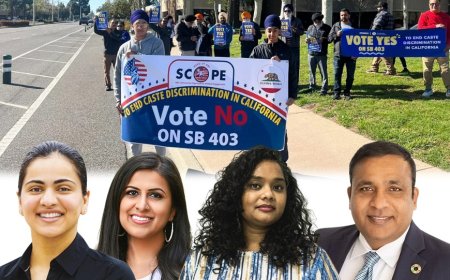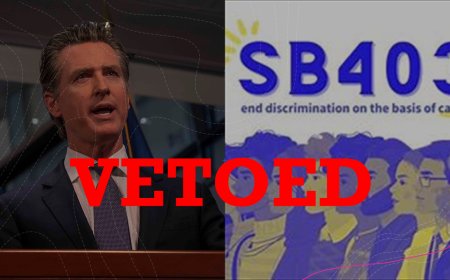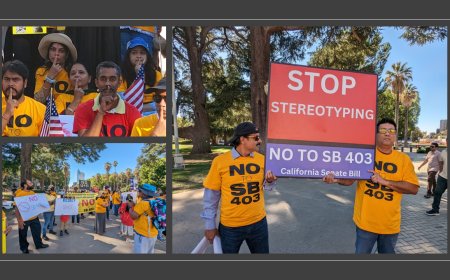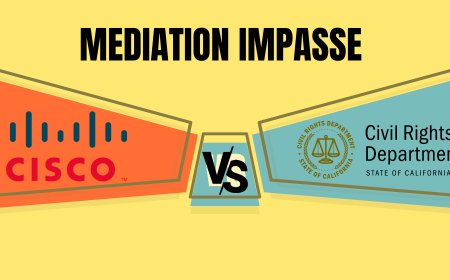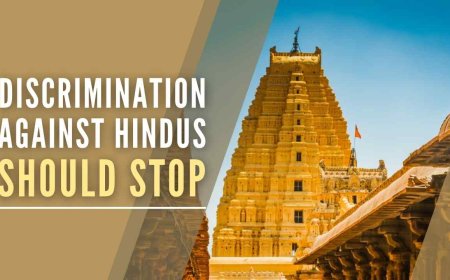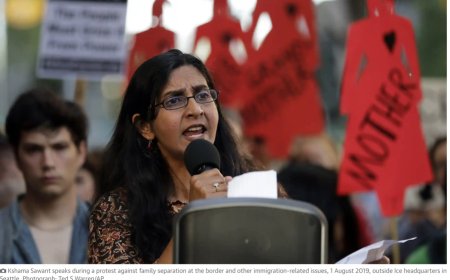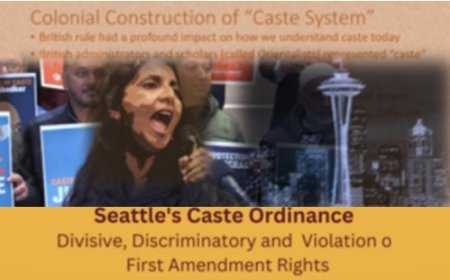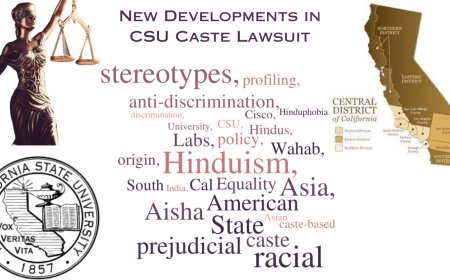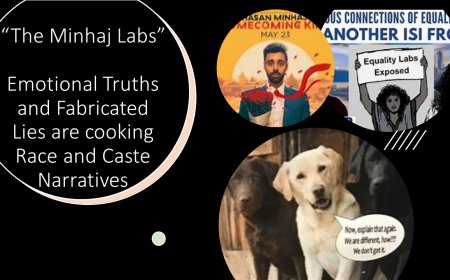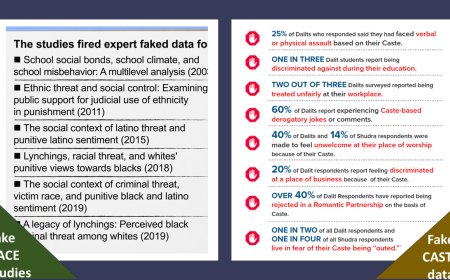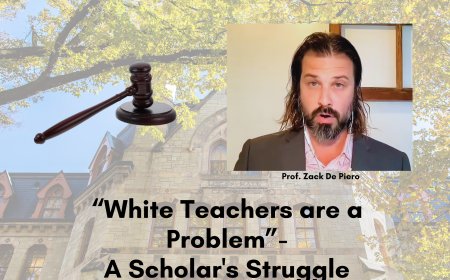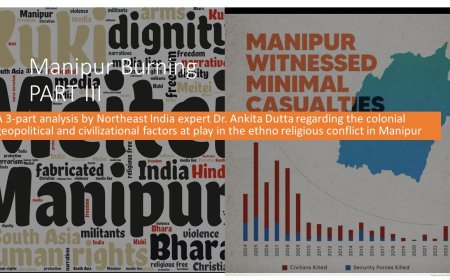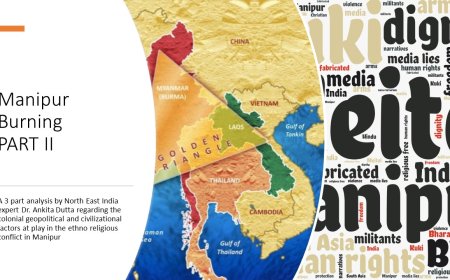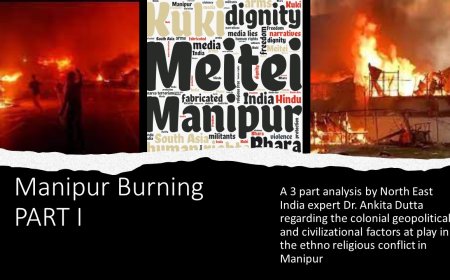Why the MITSloan Paper on Caste Misleads Managers and Organizations in USA
The solution to end discrimination is not to add new forms of discrimination - caste in DEI frameworks and corporate training will inculcate suspicions against South Asians in corporate America. With hard evidence and logical reasoning, Castefiles questions the MITSloan paper on four counts viz. Fallacy of Presumption, Circular Reasoning, Fallacy of Generalization, and Argument by Anecdote.

Is Caste Global or South Asian?
An MIT Sloan Management Review research paper projects caste as a South Asian practice transported to all parts of the world by the South Asian diaspora. The standard line of thought is “Although caste is commonly associated with India and Hinduism, it is prevalent, in varying degrees and forms, across South Asia and among other religions, including Christianity and Islam.” The paper goes on to blame the Hindu-American “upper caste” diaspora for spreading the insidious caste system across the globe.
Another approach adopted by social scientists and equity activists is almost to universalize the caste system and force-fit its prevalence in multiple continents and countries, such as the Buraku people of Japan, the Osu of Nigeria's Igbo people, and certain groups in Senegal and Mauritania. Other scholars have asserted that caste has been an integral part of Somalia for centuries, which persisted throughout the twentieth century and continues to this day.
Some academics have also advanced an opinion that “Latin American societies are still structured in a fuzzy racial caste system, a carryover of the Spanish conquistadors’ legacy. Whites are at the top. Next are individuals of mixed European and Native or mixed European and African ancestry, the Mestizos, and the Mulattos, respectively. At the bottom are the Native Americans and the blacks. These academics claim an overt preference for European appearance and, among many whites, the firm conviction that the dark-skinned are racially inferior is integral to this system.
Therefore, it is fair to say that caste remains a vaguely applicable term, often born due to colonial interactions with native societies. Hence, singling out Caste as a South Asian malady showcases a narrow-minded and biased lens, and, surprisingly, MIT Sloan risks its reputation by publishing a paper that links Caste to South Asia. To effectively address any form of caste-based discrimination, it is essential to understand the nature of caste-like systems all over the world and their impact on American society instead of highlighting it as a South Asian aberration with a focus on India and Hinduism.
Is Caste Hindu, or is it a Colonial Legacy?
Western Indology has developed a contorted narrative of Caste as a Hindu social hierarchy. Indigenous scholars of Hinduism or Indic ethnography are not consulted in this matter. Scholarly research works like "Caste of Mind" by the erstwhile chancellor of the University of Berkeley, Nicholas Dirks, trace the colonial antecedents of Caste. This is noticeable in all societies that carry a colonial legacy.
The problem starts with the fact that there is no universal and widely accepted definition of caste, although most dictionaries and encyclopedias attribute the colonial term 'Caste" to Hindu social hierarchy, ignoring all other ethnographies.
This is exacerbated by a lack of understanding by South Asian academics such as Suraj Yengde of Harvard, who obfuscate further and contradict themselves by stating in sworn court declarations that caste “emanates from the Hindu alias Brahminical books” and also claim at the same time that Hinduism did not exist until the mid-nineteenth century and that Hinduism is a political invocation to unite Brahmins. This leads to an inherent contradiction: On the one hand, Hinduism gets blamed for creating the caste system in ancient times, thousands of years ago, and yet, on the other hand, it is claimed that Hinduism did not exist until recent times.
Not only does the MIT Sloan paper say Caste is South Asian, but it conducts a deep dive into Hinduism with extensive examples from India. The paper cursorily touches upon Muslim castes without any specifics. In conclusion to the first part of our thesis, the paper targets Hinduism, invoking erroneous references to the spiritual varna system of the Hindu faith. Additionally, it targets India within South Asia.
Caste Markers do not Work
Is caste invisible, or can it be determined by a person's last name, dietary habits, skin color, religious adornments, name of their ancestral village, whom they marry, and which deities they worship?
Last names: This paper’s authors’ last names, "Bagal," and “Gautam'' are prime examples of why the last name can never be an identifier of caste. In some parts of India, like West Bengal, "Bagal '' is a tribal aboriginal with subordinate status. In contrast, in other parts of India, "Bagal'' could be a Nomadic Tribe (NT-C) with affirmative action quotas, or "Bagal'' could be an upper caste general category with no affirmative action quotas. “Bagal '' is also a last name commonly used by Maratha and Rajput communities belonging to so-called “dominant” upper castes.
Similarly “Gautam '' can be a first name, a lineage, and would not fall under any affirmative action quotas in western India. Yet, in parts of northern or eastern India, it would probably qualify for affirmative action and be considered a backward community.
Not only is there a wide-ranging difference in how last names are perceived in India, but people are free to choose their last names at will. Even within the same region, the same last name may represent opposite spectrums of the caste hierarchy, e.g., T Soundararajan, founder of Equality Labs and author of the 2018 caste survey quoted by the MIT paper who identifies herself as Dalit Diva, and MV Soundararajan, ex Brahmin chief priest of the famous "Chilkur Balaji" temple in Hyderabad, India. Both Soundararajans are from Southern parts of India, yet one self-identifies as the "oppressed," and the other is branded as an "oppressor.
Diet and Skin Color: Equally problematic are all other caste markers like diet and skin color. It is ludicrous to suggest that managers everywhere should get trained in caste identification techniques and conduct caste audits of their subordinates. What happens when an Indian American “Sharma” makes a caste discrimination complaint against Pakistani American “Khan” for eating beef at the same lunch table in the office cafeteria? Will the managers be trained in the caste nomenclature, classification, hierarchy, and cross-referencing of caste names between Hindu, Muslim, and Christian systems across South Asia, which comprises around ten countries, each with their unique caste names? Does “Khan'' take preference in the caste hierarchy over “Sharma” owing to the perceived superior Arabic and Persian ancestry and lineage of the Mughal dynasty that ruled India for several centuries? Similarly, the caste discourse in corporate America will have a trickle-down impact on other groups - reviving colonial classes again. Will a manager soon need to adjudicate a complaint by a dark-skinned Mulatto against a lighter-skinned Mestizo or a complaint by a Midgan against an Osu for not sharing the same office space to avoid the touch of an impure person? These hypothetical examples demonstrate how such an effort would infinitely complicate human resources and diversity management for no good reason. American censuses have done away with caste-based questionnaires, and there is no need to revive colorism in the US, where such classification has ceased to exist.
Existing Civil Rights Laws and the Equal Employment Opportunity Commission (EEOC) directives have been necessary and sufficient in dealing with discrimination. This is the exact premise on which the attempts in California to pass Caste Bill SB403 failed, as it was deemed superfluous by the Governor.
The Exact Extent of Caste Discrimination in the US is Debatable
Surveys: Contrary to sensational claims of "rampant" caste discrimination in the US, a 2021 survey by the Carnegie Endowment stated that caste discrimination is not a significant factor in the US. This survey also pointed out the flaws in the 2018 Equality Lab's caste survey by pointing out in Footnote 29 that “This study relied on a nonrepresentative snowball sampling method to recruit respondents. Furthermore, respondents who did not disclose a caste identity were dropped from the data set. Therefore, it is likely that the sample does not fully represent the South Asian American population and could skew it in favor of those who have strong views about caste. While the existence of caste discrimination in India is incontrovertible, its precise extent and intensity in the United States can be contested. Even in India, a 2021 Pew Research survey found that “Generally, people belonging to lower castes share the perception that there isn’t widespread caste discrimination in India.”
Lawmakers: Even in Silicon Valley, California, where the media alleges caste discrimination, there is no evidence of it. In an interview with Diya TV, Jeff Rosen, District Attorney of Santa Clara County, emphatically states that in his agency's law enforcement work, he has not encountered a single discrimination incident or hate crime related to caste. Two California State Senators, in a letter to the Governor, have noted that no concrete evidence or data has been provided to date to show that caste discrimination is, in fact, extensive in the state of California. Two other California State Assembly Members had earlier advised the California Assembly Judiciary Committee that there was no hard evidence on the extent of caste discrimination in California. They also emphasized that anecdotal evidence and lived experiences are "compelling," but they are not a substitute for scientifically collected data. Hence, they recommended an official study be conducted in California to determine the extent of caste discrimination; however, this recommendation was never implemented.
Academia and Fallacy of Presumption: This has raised serious questions on the current discipline of caste studies and underscores concerns about the quality of its research methods and the validity of its assertions. Instead of advancing the understanding of caste systems worldwide, caste studies have trapped themselves by fabricating a narrative of theoretical victims and offenders of caste brutality, violence, and bias while making unattainable demands on legal frameworks and other establishments.
Current caste studies' numerous and overwhelming issues are rooted in the European approach to Indology, grounded in missionary zeal and colonial premises. This perspective has been extended to secular humanities and social sciences, and it partakes in compromised academic practices emblematic of contemporary grievance studies.
Most of the scholarly work on this topic has constructed a narrative of "imaginary victims and culprits of caste-based oppression," which is plagued by numerous misconceptions. One such misconception and a logical "fallacy of presumption" suggests that "the simple coexistence of ‘lower caste oppressed and dominated Dalits’ and ‘upper caste oppressor and dominating Brahmins’ in the same social or work spaces implies discrimination or oppression due to the latter's viewpoint." However, this assumption is not supported by any empirical evidence.
Cisco Case - Circular Reasoning, Fallacy of Generalization and Argument by Anecdote
Cisco Caste Discrimination Case: The most famous “evidence” commonly presented is that of the Cisco Systems lawsuit. Contrary to assertions of Cisco being on the hook, a court document made available on June 13, 2023, points out that Cisco Systems and the California Civil Rights Department (CRD) have reached an impasse on their mediation and settlement efforts on the alleged caste discrimination lawsuit. Earlier, on being threatened by sanctions by the individual defendants for fabrication of evidence, the CRD withdrew their complaint against both the individual defendants, Iyer and Kompella. Departing from their past actions to keep this in the Court, the CRD approached Cisco Systems, yet again, for mediation to keep their fabrications out of public scrutiny. Iyer was assigned a "Brahmin" caste even though he has been an irreligious person, and Kompella was accused of alleged caste discrimination simply because he was following the order of his White boss to request status reports from John Doe, the plaintiff who made these accusations. All this was done solely based on their last names alone, while Kompella's boss was given a free pass and let go without any charges simply because of his White European background, which gave him immunity from caste discrimination.
Just like the CRD’s complaint, MIT Sloan Caste Paper assumes that corporate America lacks diversity and presumes that upper caste managers do not hire candidates from marginalized sections or from what the authors of the paper call “quota candidates” and ‘reservation people.”
This argument does not stand the test even in the infamous case cited in every argument for Caste in corporate America. In the Cisco case, the CEO Sundar Iyer had hired at least two Dalit candidates, one who filed the case for not being promoted and the other who was promoted - and the hiring had nothing to do with their so-called Dalit status but merit. He hired his ex-classmate (who filed the case against him) from IIT, despite being aware that he was a 'quota candidate' - he did not hire based on some caste considerations. The paper presumes parochialism when all evidence displays opposite trends.
LakiReddy and BAPS Case: Other examples tossed about are the Lakireddy Bali Reddy and Bochasanwasi Akshar Purushottam Swaminarayan Sanstha (BAPS) cases, which, on further scrutiny, do not pertain to caste discrimination. In the first case, the perpetrator was successfully tried using sex trafficking laws and was convicted and spent eight years in a federal prison and was subsequently registered as a sex offender in California. In the BAPS case, the alleged violations can be quickly addressed using existing immigration and labor laws, irrespective of the caste of the plaintiffs and defendants.
In both these cases, if it were a landlord of South American descent indulging in sex trafficking in California or a Mosque in New Jersey illegally importing cheap labor from Turkey, caste laws would have made absolutely no difference to the case. As a side note, as per the latest legal document filed on October 10, 2023, at the US District Court in New Jersey, twelve out of twenty-one plaintiffs have officially voluntarily dismissed their claims, stating they no longer desire to pursue their discrimination action against BAPS.
Legal Challenges to Caste Laws
The other aspect ignored by the backers of caste policy and corporate training is that existing US laws already cover any act that may be construed as caste discrimination. This was confirmed by California Governor Gavin Newsom when he vetoed the caste bill SB403, saying it was unnecessary.
Barbara A. McGraw, J.D., Ph.D., Professor of Law, and founding director of the Center for Engaged Religious Pluralism at Saint Mary's College of California in Moraga writes, “As California grows increasingly diverse, the solution to addressing subtler forms of intra-community discrimination is not to expand specific categories that target particular ethnic groups, resulting in discrimination against them. By deploying existing laws with their broad, neutral categories, it provides everyone with protection and the obligation to treat everyone fairly.” She also raises valid concerns that SB403 would limit equal protection and due process rights of South Asians (and others similarly situated), resulting in racial profiling because it legislates false claims based on national origin, ethnicity, and ancestry. The same argument would apply in the corporate settings.
Using the term caste and adding it as a protected category has several Constitutional flaws, as pointed out by Vikram David Amar, previously Dean at the University of Illinois, College of Law and a leading Constitutional authority. Any term or law with a selective emphasis on South Asian culture would be textually troubling to a reviewing court and would fail a facial neutrality test. It also opens the door to the possibility that such caste laws are intended to target and condemn communities with whom the word caste is deeply and stereotypically associated, such as South Asians, Indians, and specifically Hindus.
Caste laws can have uneven or disparate effects along racial or ethnic lines and often indicate invidious motives from zealous caste activists and their biases and prejudices - hence a court can bring down a law even if it is facially neutral
As long as the term caste is being used in any law in the US, it will remain problematic due to deeply entrenched biases – most Americans associate caste with India (and therefore Hinduism) and believe that there are only four castes. As a survey of American understanding of caste shows, nine out of ten Americans had no idea how to tell someone's caste based on markers such as last name, skin color, educational level, hair texture, etc.; their understanding of caste is already shaped by the time they graduate high school; and, social media and online platforms play a vital role in shaping the understanding and "experiences" of US-based Millennials. It is also worth noting that a California Judge denied judicial notice of the Equality Labs survey, the declaration by Suraj Yengde and other academics, a US State Department Report, editorials from the NY Times, and other media articles comprising twenty-three plus documents, many with circular self-references to the Cisco lawsuit; thus, making them inadmissible in Court.
If the (supposedly) noble intent is to prohibit all forms of discrimination based on class or social status, which also includes caste discrimination, a better approach would be to use the term "inherited class or social status," which is facially neutral, includes not only caste, but also any other advantages or disadvantages based on parentage or ancestry and is equally applicable to all irrespective of their ancestry, skin color, ethnicity, race, caste, creed, tribe, and national origin.
Conclusion
Targeting South Asians and portraying them as a group that inherently discriminates more than others, thereby necessitating exceptional surveillance in the form of caste monitoring and auditing, is in itself fundamentally discriminatory. This practice infringes upon the rights to equal protection and due process assured by federal and state laws. Dismissing genuine concerns of misuse and overreach, as demonstrated by the Cisco Systems caste lawsuit, as "Hindutva Nationalism," further strengthens suspicions of ulterior motives. Suggestions that a person is born in a caste and dies in the same caste are invalidated by past events of persons born in lower castes becoming great sages, writers, and poets still venerated today. Some of the most popular seers and Gurus in India right now do not belong to the general category. Mātā Amritānandamayī, reverentially addressed as Amma (Mother), has a following across all community groups and jaatis that runs in millions across India and the Indian diaspora across the world. She was born in a poor fisherfolk hamlet in the Southern state of Kerala. Swami Ramdev, India's most popular Yoga Guru with a vast business empire of traditional medicine and consumer goods, is a backward Yadav from the Northern state of Haryana. In recent times, the theory of caste by birth being an iron-clad identity holds even less water with second and third-generation Hindu Americans whose parents and grandparents belong to different parts of India. It also does not consider those who have become atheists, irreligious, agnostic, or pagan, thereby infringing upon the fundamental right to practice or not practice a religion freely. In today’s world, if there can be gender fluidity, which changes over time, so can caste be fluid depending upon one's actions instead of birth.
In conclusion, it is unethical for academics writing in prestigious journals to insinuate that diaspora of a particular background like South Asia are prone to bringing rigid stratified social hierarchies and practices to their new countries when these definitions are subjective. South Asians have thrived as immigrants since America opened its borders in the 1960s, and there has not been any evidence to suggest that they require special monitoring and the creation of new laws. South Asians, Hispanics, Chinese, and Mexicans migrate to the US to build better lives for themselves and their children, not to practice caste discrimination, drug trade, industrial espionage, or illegally traffic people across the southern border.
These stereotypes encourage hate crimes and bullying against micro-minorities. According to members of the Network Contagion Lab at Rutgers University-New Brunswick (NCRI), there is evidence of a sharp rise and evolving patterns of hate speech directed toward the Hindu community across various social media platforms. NCRI's previous research on vulnerable and minority populations has observed that when the intensity of social media hate speech reaches a "fever pitch," it can translate to violence against people in real life, as seen in past antisemitic, anti-Asian attacks. The solution to end discrimination is not to add new forms of discrimination but to be united in the common goal of living together peacefully and freely, using existing laws that treat everyone fairly, irrespective of their background.
References
[1] H. Bapuji, K.Gupta, S. Chrispla, and T. Roulet, “What Managers Everywhere Must Know About Caste,” MIT Sloan Management Review, Magazine Winter 2024 (November 2023); and H. Bapuji, S. Chrispal, B. Vissa, et al., “Local, Yet Global: Implications of Caste for MNEs and International Business,” Journal of International Business Policy 6, no. 2 (June 2023).
[2] T. Tamari, “The Development of Caste Systems in West Africa,” The Journal of African History Vol. 32, No. 2 (1991); HRW, “Caste Discrimination: A Global Concern,” August 29, 2021; A.A. Samad, “Brief Review of Somali caste systems,” (August 2002); and R. Martinez and V. Iyer, “Latin America’s Racial Caste System: Salient Marketing Implications,” International Business & Economics Research Journal, Volume 7, Number 11 (November 2008).
[3] Merriam-Webster, “caste,” Dictionary, 2023; R. Malhotra, “Caste bomb in America: Harvard’s Dalit poster boy has a fixation against Brahmins,” Firstpost (November 2022); S. Yengde, “Declaration,” Superior Court of the State of California (November 2020); and R E. Frykenberg, “Constructions of Hinduism at the Nexus of History and Religion,” The Journal of Interdisciplinary History, MIT Press Vol. 23, No. 3, Religion and History (Winter, 1993).
[4] Ontario Human Rights Commission, “OHRC’s Policy position on caste-based discrimination,” Human Rights Code (October 2023); Government of India, “Inclusion of Bagal Caste in the List of Scheduled Tribes,” Lok Sabha Debates (May 1985); Maharashtra Public Service Commission, “Nomadic Tribes (C),” Advertisement Number – 02/2010 (April 2010); Fergusson College, “Merit List for Admission Process 2019-20,” Savitribai Phule Pune University, Pune, Category: NT- C (2020); Mahatma Phule Krishi Vidyapeeth Rahuri, “Admissions 2023-2024,” Agril.Tech. School(Marathi)/Agril. Polytechnic (English) (2023); T. Soundararajan, “Thenmozhi Soundararajan is Dalit American commentator,” Dalit Diva (2023); Telangana Today, “Chilkur Balaji temple Chief Priest MV Soundararajan gets new title,” English News (May 2021); and S. Yengde, “South Asia Seminar: Brahmins Tryst With Brahminism,” The University of Chicago, division of the Humanities South Asian Languages and Civilizations (November 2019).
[5] S. Badrinathan, D. Kapur, J. Kay, and M. Vaishnav, “Social Realities of Indian Americans: Results From the 2020 Indian American Attitudes Survey,” Carnegie Endowment for International Peace (June 2021).
[6] Diya TV, “Santa Clara County District Attorney Jeff Rosen comments on SB 403,” Protected Speech with Ravi Kapur and Jonathan Choe (May 2023); B. Jones, “Senators Jones and Grove Urge Veto of Discriminatory SB 403,” 40th Senate District (October 2023); E. Low, “Letter to Chair, Assembly Judiciary Committee,” 26th Assembly District (June 2023); and The South Asian Times, “Racist, anti-Indian language stripped from California caste bill SB-403 by Assembly Judiciary Committee,” USA News (July 2023).
[7] P. Shah, “Caste studies today: Imaginary victims and perpetrators,” Oñati Socio-Legal Series, Vol. 13 No. 1 (2023); and A. Kumar, “The West has imagined ‘caste oppression’ and it is being weaponized against Indians," The Print (February 2023).
[8] S.A. Shukla, “Dismissal of Cisco case proves engineers were targetted because they were Indian," The Print (April 2023); Fox Rothschild, “Fox Rothschild Employment Team Secures Dismissal of Claims Against Cisco Supervisors,” Press Release (April 2023); and R. Gautam, “Defendants Iyer, Kompella Denied Due Process in High Profile Cisco Caste-Based Discrimination Case,” Caste Files (April 2023).
[9] S. Yelimeli, “Lakireddy Bali Reddy, Berkeley landlord convicted of sex trafficking, dead at 84,” Berkeleyside (November 2021); J. Atmonavagae, “Lawsuit accusing NJ temple of human trafficking on hold as criminal investigation continues,” NJ Advance Media (December 2021); P.J. Fishman, “Letter to Judge Castner,” Arnold & Porter Kaye Scholer LLP (July 2023); and G. Castner, “Notice of Voluntary Dismissal of Claims,” United States District Court New Jersey (October 2023).
[10] B.A. McGraw, “Opinion: Caste bill would harm California’s South Asian communities,” The Mercury News (April 2023); A.Q. Nomani, “Gov. Gavin Newsom should veto bill banning so-called ‘caste’ discrimination,” The Orange County Register (September 2023); and A. Jadeja, “Protect, Don’t Persecute Indian Americans: Slander Isn’t the Solution,” Real Clear Politics (September 2023).
[11] V.D. Amar, “Preliminary Thoughts on Potential Constitutional Flaws in SB 403, a California Proposal to Prohibit Caste Discrimination,” Justia Verdict Legal Analysis (May 2023); A. Kejriwal, “Complaint Letter to Harvard,” Hindu Students Council (February 2021); R. Jha, “Indian-origin ‘Hindu American’ sues Seattle Councilwoman Kshama Sawant over caste-discrimination law,” Indica News (May 2023); and A. Bagal, “Opposition To Motion To Dismiss,” US District Court Western District of Washington.
[12] CoHNA, “A Survey of the American Understanding of Caste,” Coalition of Hindus of North America (May 2023); D.C. Takaichi, “Denial Order on Motion To Proceed,” Superior Court of California (February 2021).
[13] R.G. Klausner, “Motion for Judgement on the Pleadings,” US District Court Central District of California (July 2023); and J.O. O’Connell, “Gavin Newsom Vetoes SB 403, Effectively Neutering the Victimhood Mafia,” RedState (October 2023).
[14] A. Bagal, “American guns on caste trained only at Hindus from India. What about Japan, Somalia,” The Print (June 2023); and J.O. O’Connell, “The Racist SB 403 Divides California's South Asian Community; Will Newsom Sign It Into Law or Veto It?” RedState (October 2023).
[15] P. Sudhakar et al. "Anti-Hindu Disinformation: A Case Study of Hinduphobia on Social Media,” NCRI Research Institute, Rutgers University (July 2022); C. Littlewood, “Anti-Hindu Hate in Schools,” Henry Jackson Society Centre on Social and Political Risk (April 2023); and D. Allington, D. Hirsh, and L. Katz “Antisemitism is predicted by anti-hierarchical aggression, totalitarianism, and belief in malevolent global conspiracies,” Nature Humanities and Social Sciences Communications volume 10, Article number: 155 (2023).

